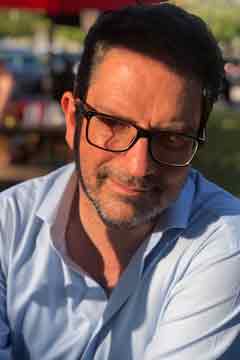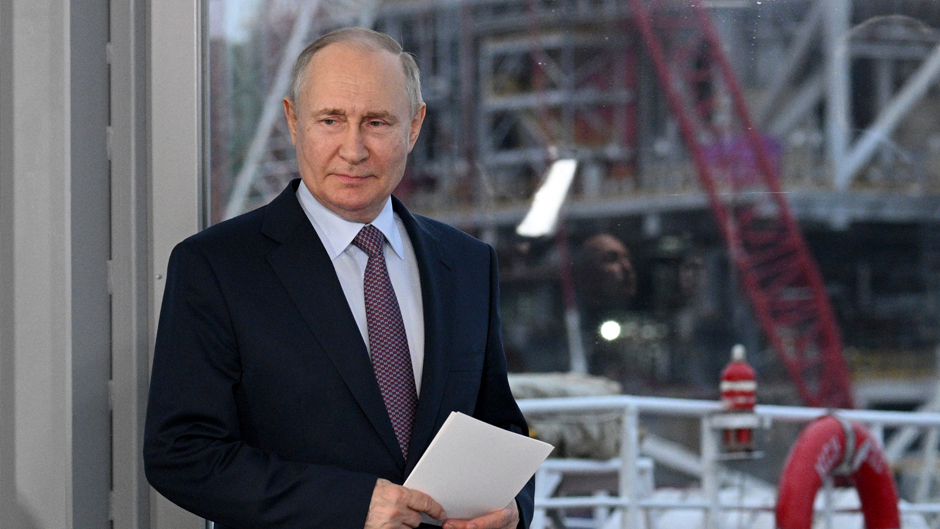Sanctions have hurt, but not crippled the Russian economy, and, despite an aborted uprising a month ago that raised the specter of political turmoil in Russia, the absence of any leadership alternative and the nature of the global economy indicates that the Russian president is as entrenched as ever in power.
“What we’ve seen has been a wave of redistribution through privatization of the wealth of Western assets from the capital flight from Russia, a consolidation of power, complete control over media space, and approval ratings for Putin that remain unchanged. Russia is essentially an isolated country that so far has managed to survive,” said Dina Moulioukova, a senior lecturer for the Department of Geography and Sustainable Development in the College of Arts and Sciences.

Moulioukova emphasized the structure of the Russia state and the power of the state-controlled media that both codifies and amplifies the narrative of a powerful Russia and whose messaging strives to disrupt Western democracies.
“Russia has no real institutions but is instead a network state of deep connection between specific individuals linked closely to the Kremlin that find themselves in positions of power. So, it’s very difficult to say what is happening,” she pointed out.
Moulioukova cited recent survey results from the Levada Center, a Russian independent, nongovernmental polling and sociological research organization, and highlighted that any analysis of Putin, the war, or the recent mutiny vary widely depending on the audience.
The generation of Russians 55 and older, whose perspective stems largely from television—the monolithic voice of the government—remain highly supportive of Putin and the war and critical of Yvegeny Prigozhin, the armed Wagner Group mercenary leader of the uprising, she explained. While younger Russians, in the 18- to 24-year-old grouping—those who seek their information from Telegram, social media, and bloggers—are decidedly more critical.
The audiences have contrasting opinions of Prigozhin’s motives for the uprising, though his criticism of the Russian generals leading the war effort are clear to all. The major change that the survey documents is the increased disapproval of the role of the Russian military, and the theory even exists that Putin masterminded the mutiny to shift the blame to the commanders, she noted.
“A lot of questions remain on how Putin handled the situation. The mutiny revealed fractures and competition among Russian elites as well as other vulnerabilities and, to some extent, exposed the fragility of Russia's claim to be a strong consolidated state and great power,” said Moulioukova, who is herself an ethnic tartar (largest ethnic minority in Russia) who lived and studied in Russia.
Pablo Rueda-Saiz, a Miami School of Law associate professor whose specialization includes armed conflict and globalization, emphasized that Russia’s complex and expansive economy has proved more resistant to the sanctions than many in the West had hoped. According to Rueda-Saiz, rogue players and the “good business of war” are likewise to blame.

“Outliers like China, India, Venezuela, Iran, and to some extent the Saudis, Brazil, and Turkey are keeping the Russian economy working, but they’re not the only ones,” he said. “The measures adopted by Europeans have a limited scope—no European countries are willing to go without Russian goods,” he added.
“Europe did not go all out on Russia and stop trade. They only exert as much pressure as they think is a deterrent,” Rueda-Saiz continued. “It wouldn’t be wise to use all their economic guns because if that strategy doesn’t work, then they’re left with nothing. So, it wouldn’t be useful to abolish trade.”
Rueda-Saiz also noted how the globalized ties that exist today contrast with the scenario extant during the Cold War. “Germany, France, and Great Britain have a deep-seated economic relationship with Russia today, and it’s not going away anytime soon because Europeans cannot afford to do without Russian gas, oil, and fertilizers. And then look at the financial interactions between Russia and Great Britain,” he said.
Liberal international relations scholars, he added, predicted that as international trade grew more intense it would increase the cost and reduce the frequency of wars. “But we’re witnessing that’s not the case,” Rueda-Saiz said. “We can have hot wars, proxy wars, or cold wars and still have a lot of trade.”
Countries like Brazil and Turkey have been reluctant to alienate Russia by joining the sanction coalition, he explained. And he also pointed out that weapons dealers in Germany and elsewhere have increased their production of large-scale ammunition and Leopard-2 tanks for sale to Ukraine.
“War is very good business and not just for arms traders,” he said. “Countries that buy and sell commodities make fortunes with wars. A war changes the price of everything, from real estate to cereal. So even as countries declare support for Ukraine and the need for peace—this is a half-truth because there are powerful actors within these countries who seek to reap the benefits of the war.”
The effectiveness of economic pressure varies substantially depending on the circumstances, said Rueda-Saiz. “What is very effective today, six months from now may not be. Cutting supplies of a commodity might work for a while, but they’re just going to find substitutes and new providers and different distribution chains,” he added.
Rueda-Saiz pointed out that the possibility that international law could be used to pressure Russia—be it for alleged human rights atrocities committed against civilians in the war or against captured Ukrainian fighters or for those rogue players cashing in on the war—was unlikely.
“There is very little that the Geneva Convention or more generally international law can do about that. International law struggles to keep afloat in times of armed conflict, and we shouldn’t have such high expectations because it serves no purpose and everybody just becomes frustrated with the law,” Rueda-Saiz said.
The law scholar also said he was concerned about the Biden administration’s decision to provide cluster bombs for the Ukraine to use in its counteroffensive.
“This could go sideways for many reasons. Though there are all sorts of limitations on their use, during a time of conflict there’s no one to enforce those and their use could ultimately delegitimize the support Ukraine is receiving,” said Rueda-Saiz, referencing the fact that 111 countries have ratified the convention against these types of bombs.
When considering the evolution of the conflict and Putin’s rule as an authoritarian strongman in Russia, what’s most important is that a way out of the conflict be provided, he added.
“It’s symbolically important that the coalition is holding,” Rueda-Saiz said. “But the West doesn’t want to ruin Russia. It’s in no one’s interest to ruin Russia, because when you have a regime, you don’t want to leave the dictator without a way out,” he added.
“Putin is not going anywhere,” Rueda-Saiz said. “I’m skeptical about reports that suggest Putin’s still in power because of the lack of a successor or that he’s losing his grip in Russia. But I do think he’s not as powerful anymore, and he needs to save face and see a way out.”

